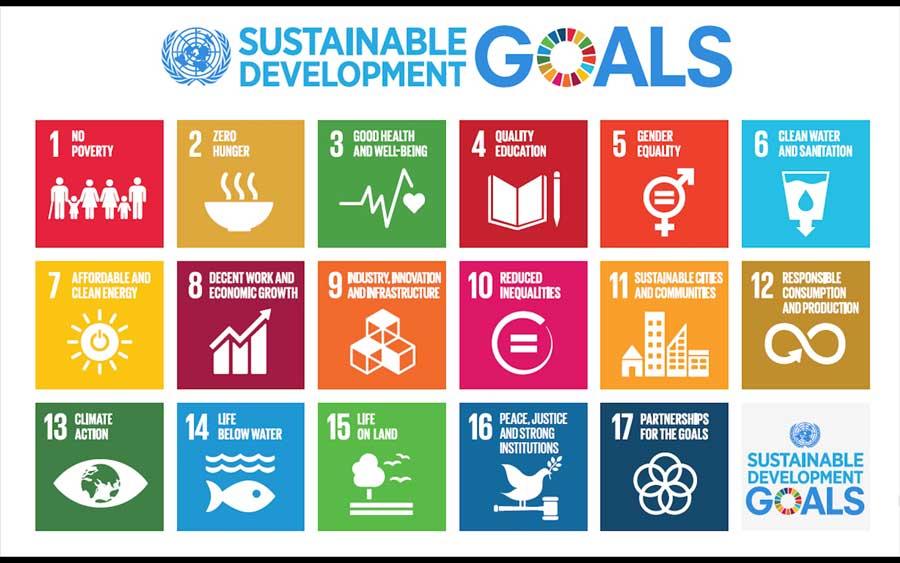Reply To:
Name - Reply Comment
Last Updated : 2024-04-18 08:30:00

 This article series considers the Buddhist approach to conceptions of sustainability and development. It deals with the interpretation of the United Nation’s (UN) Millennium Development Goals (MDGs) from a Buddhist perspective. It examines the conception of sustainable development, background of MDGs and draws up the Buddhist solution for securing environmental sustainability.
This article series considers the Buddhist approach to conceptions of sustainability and development. It deals with the interpretation of the United Nation’s (UN) Millennium Development Goals (MDGs) from a Buddhist perspective. It examines the conception of sustainable development, background of MDGs and draws up the Buddhist solution for securing environmental sustainability.
Based on its commitment to human rights and sustainable development, the UN adopted the Millennium Declaration (MD) in 2000 at its Millennium Summit. In accordance with the global solution of the world’s social problems, MD asserted the commitment that everyone had the right to basic human values of dignity, freedom and equality, to the basic standards of living and to development (United Nations, 2000). Right after proclaiming this framework of development, MDGs were established in unanimous agreement of all UN member states. MDGs set eight concrete goals with specific targets and indicators in order to achieve the objectives of MD until 2015 (Eight goals for 2015). MD was the theoretical framework of the UN’s commitment and MDGs were the concrete measurements of the progress in practice.
Buddhism is very close to Millennium Development Goals, but very far from its spirit. MDGs are designing desirable ends without denoting the means to achieve them
The eight MDGs are: Eradication of extreme poverty and hunger; Achievement of universal primary education; Promotion of gender equality and empowerment of women; Reduction of child mortality; Improvement of maternal health; Combatting HIV/AIDS, malaria and other diseases; Securing environmental sustainability; Development of a global partnership (Eight goals for 2015, Millennium Development Goals; We can end poverty).
Dhamma or teaching of Lord Buddha is fundamentally about the eradication of suffering: how individuals can reach liberation by removing the roots of suffering. One necessary condition of this process is the satisfaction of basic human needs. Furthermore, Dhamma contains direct social teachings on how to meet these needs, but there are numerous Buddhists who deal with social issues, approaching them from the more profound ethical point. Besides the United Nations’ attention to most stressing problems of the contemporary world, Buddhist monks and scholars too pay significant attention to the same subjects.
One starting point of discussion is that the UN is aware of the prevalent social difficulties and is striving to solve them by employing MDGs. The other starting point is Dhamma which deals with liberation, but recognises the necessity of basic needs for liberation. Both of the approaches are in someway dealing with all subjects highlighted in MDGs. Hereinafter the paper examines how Buddhism interprets these eight fields of development and the spirit of MDGs; it’s looking for the answer on how these two approaches can be attuned and what their common interfaces are. Lastly, it’s investigating how Buddhism can contribute to the realisation of MDGs, especially providing environmental sustainability. But before investigating these issues, the paper explores the historical background of MDGs.
As the official homepage of Millennium Development Goals states, MDGs have galvanised unprecedented efforts to meet the needs of the world’s poorest (We Can End Poverty…). Some of the goals have already been achieved or will be achieved until 2015. Ensuring environmental sustainability is one of the most stressing problems of our modern world and it’s also on the agenda of MDGs, but the performance of this area isn’t sufficient to achieve the designed target values until the deadline. Critics go further and say insufficient emphasis on environmental sustainability is a major deficiency of MDGs.
The Buddhist interpretation of MDGs reveals Buddhism basically gives the same importance to all of the mentioned goals as they are regarded as basic necessities of life. Thus Buddhism is very close to Millennium Development Goals, but very far from its spirit. MDGs are designing desirable ends without denoting the means to achieve them. In contrast, Buddhism is a means of liberation which is based on material necessities, but points to a further end: spiritual perfection. Buddhist livelihood, following the Noble Eightfold Path, is the means to spiritual perfection, but more importantly, it inherently gives solution for the weakness of MDGs – its ensuring environmental sustainability by leading a frugal, simple, environmentally-sound livelihood.
Buddhism cannot interpret sustainable development and sustainability directly as it is approached by MDGs. It’s approaching these subjects similar to Paticca Samuppãda or Dependent Origination. Thus Buddhism brings about positive social and environmental changes and the achievement of performance indicators like the UN Millennium Development Goals as a consequence of leading a Buddhist livelihood.
To be continued…
(The writer is an undergraduate at the Philosophy Department, Arts Faculty of PeradeniyaUniversity).

Add comment
Comments will be edited (grammar, spelling and slang) and authorized at the discretion of Daily Mirror online. The website also has the right not to publish selected comments.
Reply To:
Name - Reply Comment
On March 26, a couple arriving from Thailand was arrested with 88 live animal
According to villagers from Naula-Moragolla out of 105 families 80 can afford
Is the situation in Sri Lanka so grim that locals harbour hope that they coul
A recent post on social media revealed that three purple-faced langurs near t

10 Apr 2024
09 Apr 2024